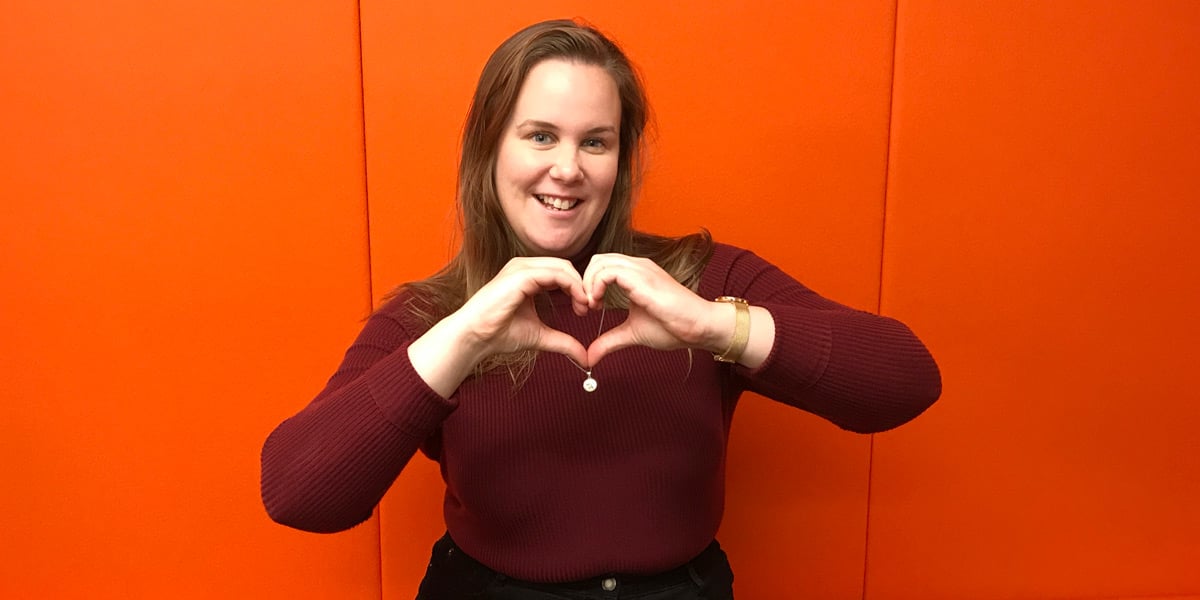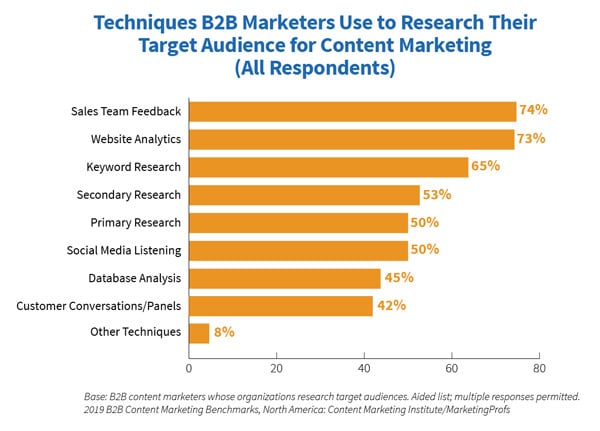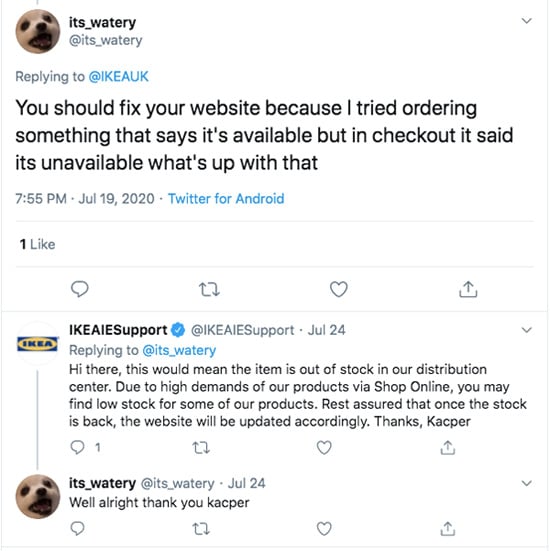Social media engagement is a constant source of frustration for many businesses.
Companies understand that for a social media strategy to be effective, consumers must respond to it. But sometimes, even informative posts that require a lot of effort seem to be flat out ignored by the people they’re supposed to reach.
In fact, even though global social media spending reached a staggering $98 million in 2019, many companies didn't see the results they were hoping for. There are lots of reasons why this could be the case, with many citing changing feed algorithms and overwhelmed audiences as some of the main explanations.
But hope is not lost! With a thorough and comprehensive social media engagement strategy, you can break through the clutter and get your messages noticed.
To help you get started on the path to success, let's explore what social media engagement is and what questions you need to answer when setting up your brand's campaigns.
What is social media engagement?

Social media engagement is the collection of performance metrics that define whether a post or a page generates a response from its audience. Each social media platform has its own ways for users to show appreciation or interact with posts, but some symbols such as 'likes' are consistent on most platforms.
What's more, engagement can mean different things to different companies, or even to the same company during various campaigns. Some brands want clicks and visits, while others want comments, likes, and shares. Others want prospects to reach out directly via private message or tag their brand in user-generated content posts.
So, while there isn't a single type of engagement that's worth singling out, there is a common theme that we can establish. Engagement means that your target audience is choosing to interact with your or your client’s brand and is actively participating in, or sharing, your message.
The organic and natural way that engagement happens on social media is what makes it so powerful. Consumers seeing their friends and families interact with a brand can be a compelling reason to trust the brand themselves, which can help reach a broader audience and attract new customers without paid advertising.
Key questions to answer
Now that we've looked at what social media engagement is, we can dig deeper into the specific questions that you'll need to ask when putting together campaigns for your or your client's brand.
Here are some of the most important questions that, when answered, will give you a better sense of direction and help you increase social media engagement by making better decisions at every stage of the planning process.
What are your goals?
As we explored in the previous section, social media engagement can mean completely different things from company to company. But many make the mistake of taking a broad approach to their campaigns, which often results in poor performance and little to show for in terms of any tangible benefits to the company.
To avoid mediocre results, you should focus your efforts on just one or two social media goals at a time. Each post that you create should be designed to achieve a single primary goal, and all of your decisions should be based on making that goal happen.
The three most common goals for social media marketing are:
- Brand awareness
- Lead generation
- Community building
If you want to increase your brand awareness, you should focus on getting likes and shares. However, if you're going to generate leads, you should aim to get prospects to take action, either by clicking through to your link or reaching out to your brand directly.
As you can imagine, different goals will require completely different approaches, not to mention the fact that the method for achieving engagement on Instagram will likely be very different from that of achieving Facebook engagement.
As an example, if your goal is to increase engagement on Instagram, then you could consider using Instagram Stories as part of your strategy, since one third of the most viewed Stories on Instagram come from business profiles.
To capitalise on Stories and achieve engagement for your brand, you may choose use an Instagram story maker to fully customise each video and emphasise the specific message, as well as the video's purpose, according to their goals for the specific post.
The bottom line is, you should set clear goals for social media engagement at the beginning of every campaign. That way, you always know what you're reaching for!
Who are you trying to reach?
Understanding your audience is a crucial part of the equation when it comes to social media engagement. But while you should cater your posts to suit your marketing personas, you must also consider your audience's unique characteristics and think about how they would react to different approaches.
Without knowing your brand's audience, you can only guess what might capture their attention and get them to take action. What's more, without understanding the unique triggers of the people you're trying to reach, you would likely come up with generic posts that aren't appealing to anyone at all.
Therefore, you should take the time to understand your customers and collect as much information about them as possible - and there are so many ways you can do so:
Whether it's looking at your current pool of customers, analysing demographics data, or even running surveys, the more insights you can gain, the more you'll have to work with when putting together social media campaigns.
How's your current performance?
If you want to improve results consistently, you must measure social media engagement and track the key metrics that matter the most. Otherwise, you're essentially operating in the dark, without any idea of what's working or how you could improve.
Sure, you'll have the basic idea as you see how many likes or shares your posts are getting, but you'll have a much harder time spotting trends or keeping track of whether the changes that you're implementing are actually working.
Therefore, before you change anything, you should look at your current performance and conduct a social media audit to see what's working and what isn't.
That way, you can avoid accidentally tweaking with things that are already doing pretty well, and can focus your attention on areas that aren't delivering.
Using various social media scheduling or analytics tools, you can automate a lot of the processes that go into compiling data and gain valuable insights about your audience in general. You can also dive into the performance data of specific posts and find out valuable information on your brand's followers.
Here's an example from Sendible's engagement report:
These types of insights will help you use your time more effectively and focus on posts that provide the biggest ROI.
Over time, as you gain more knowledge and experience on various social media platforms, you can slowly establish a dominant position in your marketplace and learn how to gain an advantage over the competition.
Could you benefit from a partnership?
No matter how large or small your current audience might be, there will usually be a limit to the pool of people you can reach. Sure, engagement aims to steadily grow your audience, but that is a long process that can sometimes stagnate growth if not supplemented by other methods.
However, savvy brands are finding ways to break through to segments of their audience using well-executed partnerships with key figures on social media.
Influencer marketing has gained popularity over the last few years, and with current global spending on influencer campaigns projected to be $5-$10 billion, marketers clearly trust its effectiveness.
A big part of the reason why, is that it can provide an almost instantaneous boost to your or your brand's engagement, potentially sending a flood of new prospects to your page.
What's more, these prospects are already primed to be interested in what you have to offer, as they learned about your brand from someone that they follow and whose opinion they trust.
So how can you get started with influencer marketing?
Well, the good news is that you don't need to have a massive budget to take advantage of what it can offer. Sure, you might not be able to hire A-list influencers with millions of followers, but that actually works in your favour.
Instead, you can pursue smaller influencers that have fewer followers but a very loyal and engaged audience. These influencers are more affordable, will be much more eager to work with you, and can offer you a hungry audience primed to like what you have to offer.
If you can discover smaller influencers in your niche that are a good fit, you can provide your social media pages with an instant influx of new followers and leads, fast-tracking your progress and helping you expand your reach.
How can you reciprocate engagement?
Many brands see social media engagement in the form of likes, shares, and comments. But if you're just posting carefully-crafted posts, your brand might seem distant, just another sales pitch waiting to happen.
And if you've ever seen some of the viral social media campaigns run by other companies, you've probably noticed that they don't follow this approach. Instead, these brands actively seek out opportunities to talk with their audience, sometimes even calling out people and responding to comments.
Taking a proactive approach when engaging your audience on social media can be extremely useful, especially if you manage to incorporate humour and make your brand's messages relevant.
Sometimes, engaging your audience might be as simple as responding to comments. You'll likely have many people asking questions or sharing feedback, which is a perfect opportunity to show what your brand is all about by being helpful and informative in your responses.
But you should also be proactive and look for brand mentions outside of your own pages using social media monitoring. If someone's talking about your brand, you want to be the first to enter that conversation in order to prevent competitors from hijacking it.
If someone's having a negative experience, make sure to address it head-on and offer to fix the problem. This should not only appease the person that's frustrated but also show others that you're a brand that takes responsibility for its mistakes and owns up to them.
When should you post?
If you feel like you're thoroughly answering each of the questions above and still aren't getting the conversion numbers that you'd like, you might find that something as simple as the timing of your posts is getting in the way of your brand's success.
There is plenty of research on the topic of optimal posting times, but it’s best to remember that different audiences have their own preferences for browsing social media, and even an hour's difference might become the deciding factor in whether your post generates that early traction and gets picked up by the algorithms to be showcased more prominently.
For instance, some audiences primarily check their social media before and after work, so if you post after ten in the morning or before five in the evening, you will probably find that you get far less engagement than if you'd post just a bit earlier or later.
Other people might be most active later at night when they've had time to unwind and have dinner. If you can get in front of your audience at that time, you might find that they not only engage with your brand's posts but actively participate in the conversation as well.
No matter what preconceptions you might have, you should always test different times and see how your performance changes. Over time, you'll discover how different types of posts are better suited for different times of the day or even different days of the week.
Final words
Social media engagement can be tricky, especially when your brand is just starting out and doesn't yet have a huge following.
However, if you go through the questions listed above and answer them as you set up your campaigns, you will find that social media marketing is all about trial and error, and that your audience can be very responsive if you find the right way to engage them.








